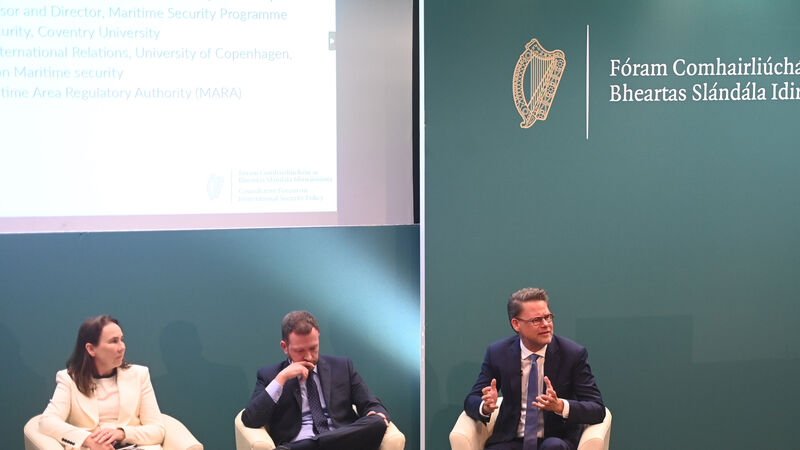More cooperation with other countries on maritime protection and investment in navy urged

Laura Brien incoming CEO, Maritime Area Regulatory Authority, Robert McCabe, Institute for Peace and Security, Coventry University, and Christian Bueger, Professor of International Relations, University of Copenhagen, at the Consultative Forum on International Security Policy at University College, Cork.













